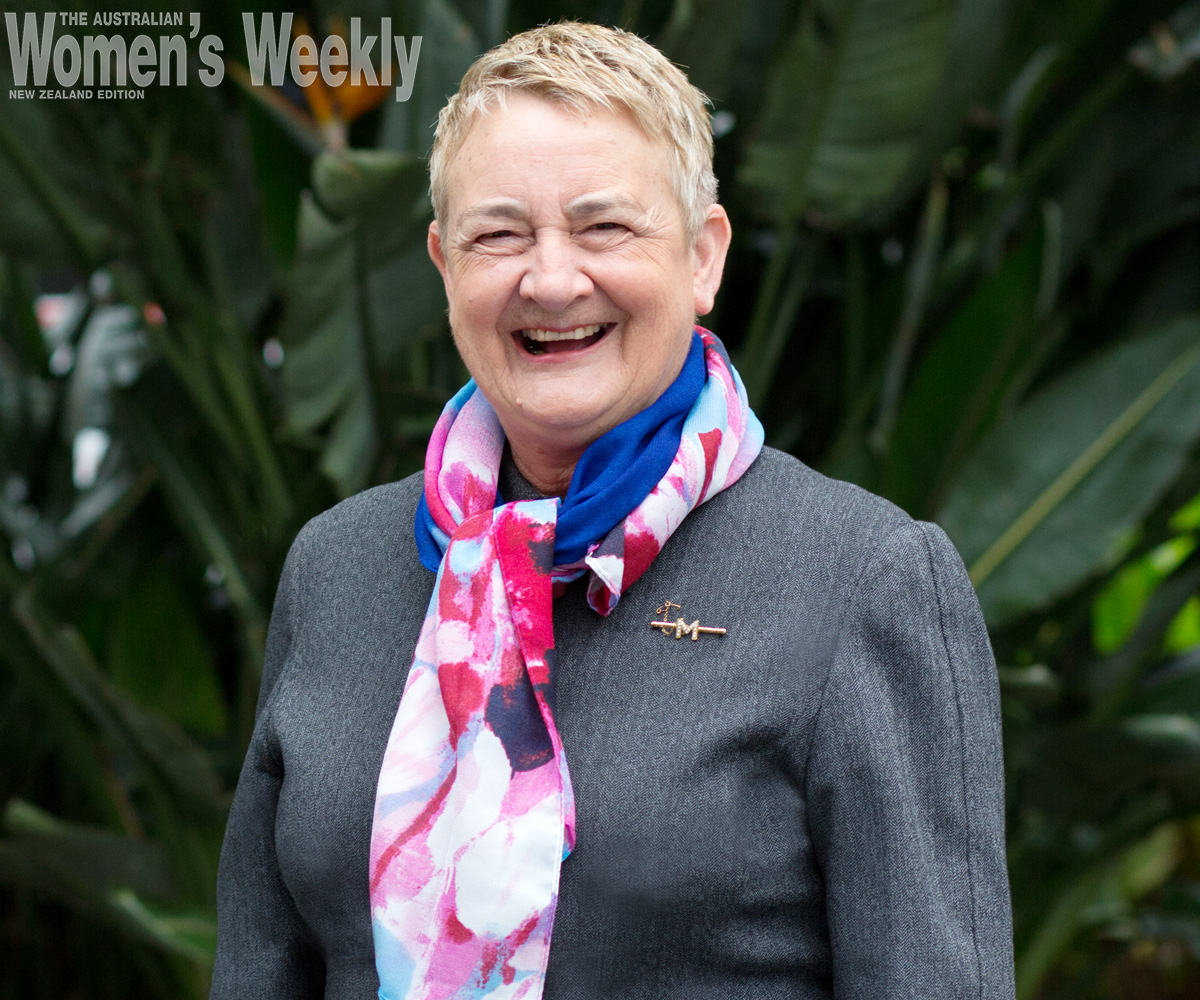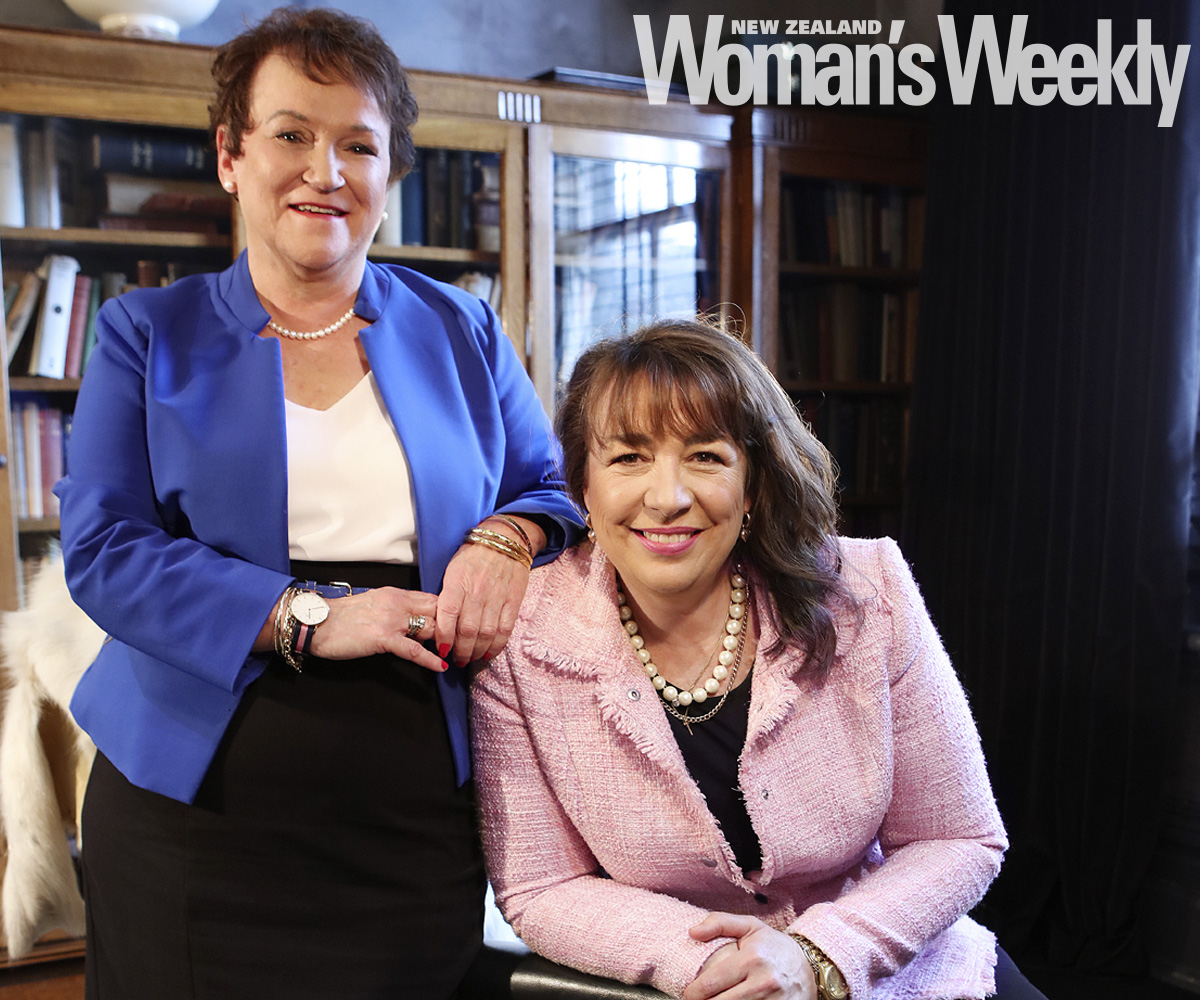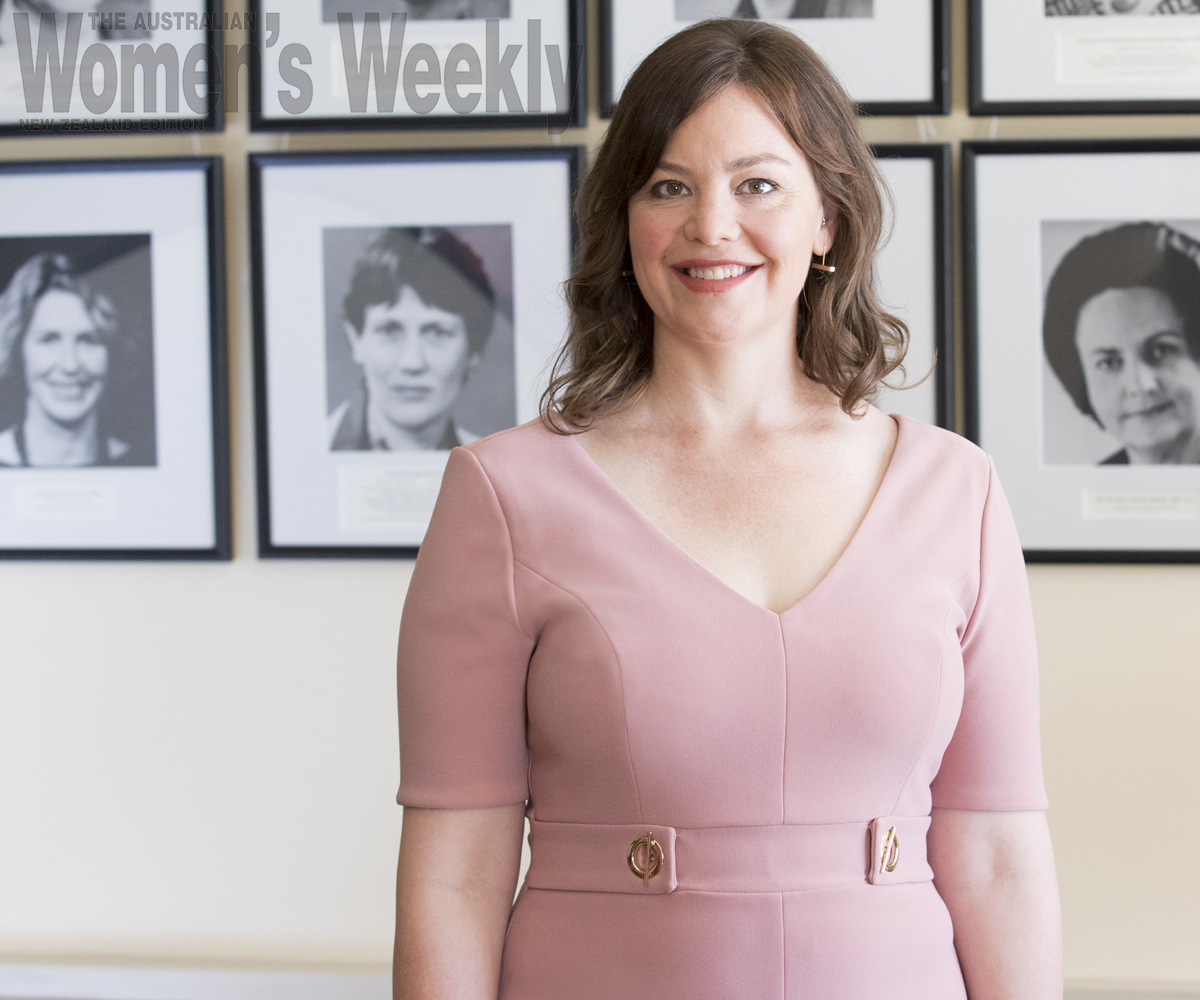She was known to many as the “slip of a girl” who went on to trigger the downfall of the Muldoon government.
Marilyn Waring had entered parliament at just 23. Not so extraordinary, perhaps, in these more enlightened times, but back in 1975 she was a rare case indeed.
In a photo on the cover of her latest book, Marilyn Waring: The Political Years, she looks boldly out at the camera, the sole woman amid a sea of grey-suited men, most of them more than twice her age.
The Political Years is a must-read for those who want to understand the workings of parliament. An account of her nine years in government, it is gritty, honest, raw and uncompromising, much like its writer.
These days Marilyn Waring is internationally respected for her ground-breaking work on defining how the success of economies across the world rests on the unpaid work of, largely, women.
She is described as one of the world’s leading feminist scholars (a title she dismisses as sexist; “I’m an economist,” she insists) and is currently a Professor of Public Policy at the Auckland University of Technology.

Muldoon had been keen for Marilyn to join National in the 1975 election.
Feminism was becoming a force and while Labour could boast a handful of women MPs among its ranks, National “quite frankly, was up the creek without a paddle,” she says. They had not a single female MP.
Marilyn had long been an interested observer at Women’s Electoral Lobby meetings.
“WEL was full of feisty, energetic women of that generation. I just went to watch and listen,” she says.
The group had written to all the parties asking why there were not more women in parliament. The answer came back, “We’d love to have more women; they’re just not putting their names forward.” Marilyn decided to call their bluff.
“Often women have to do something to prove the accepted wisdom doesn’t have to be,” she tells me simply.
At the time – the mid 1970s – the National Party was in opposition. Marilyn was working in their research unit. Her boss was George Gair, National’s spokesman on housing and a liberal-minded MP. She suggested quietly to Gair that she should stand for her home constituency of Raglan.
“It was a throwaway comment really,” she says.
“Twenty minutes later Sir Keith Holyoake popped his head around the door and said, ‘George says you can stand. Here’s a nomination form. Fill it in.'”
She laughs as she tells me the criteria for selection.
“There was a section for war service, one for local government experience and another for awards and honours. I had nothing to put down until it got to education.”
Marilyn had an honours degree in Political Science and Law from Victoria University. She also studied music performance, as she was intent on becoming an opera singer. After university she travelled to Europe to continue her music studies in London.
A self-confessed political junkie, she was in the right place at the right time, as elections were underway in Europe. She studied them closely.
It wasn’t long, though, before her cash ran out and she was forced to return to New Zealand, eventually finding a job in the National Party’s research unit while carrying on her music studies. Because of her job, she had a reasonable understanding of the workings of parliament – unlike many new MPs – and that would stand her in good stead in the turbulent years to come.
Muldoon was initially supportive of her and he and Marilyn shared views on issues such as welfare payments to single mothers, but the pair quickly fell out with increasing conflicts.
The Waring family had been entrenched in the Raglan electorate for generations. Marilyn had grown up in Taupiri, near Ngaruawahia. Her father was a butcher. She spent her holidays working for him, delivering meat around the neighbourhood, so she was known in the community.
“Once I realised I had some people backing me, then I had to apply myself to this. I didn’t want to make a fool of myself or have them say women are not up to it.”
Apply herself she did. She closeted herself in the local library and read three months’ worth of back issues of all the local papers to get a handle on community concerns.
“There was so much I didn’t know, but once I won the nomination people were so lovely.”
There were 21 branches in the constituency.
“They played pass the parcel with me. I started in the north-west and worked my way down, talking to farmers and business people, going to roading meetings and meet-the-candidate evenings.”
Innately curious, Marilyn was there to learn. Once people realised that, they embraced her. She became “our girl”; they became, she says, “my people”. She never once lost sight of her obligations to her electorate.

Marilyn’s childhood was, she says, “charmed”.
It was a village existence. The kids roamed in gangs. If you wanted to track them down you’d ring Mrs Lovell at the phone exchange and she’d ring around and ask, “Has anyone seen the kids?”
Marilyn was immersed in the local Maori community.
“I was born on the day of [Princess] Te Puea’s tangi. I was part of the local kapa haka group. I knew Dame Te Atairangikaahu well. It was so important growing up in Taupiri. I completely naturally learned there were other ways of knowing and being.”
Her parents, Bill and Audrey Waring, were an intrinsic part of the community. They helped out at Plunket and the local church.
Marilyn’s grandfather was well known for his generosity. Also a butcher, he would know who hadn’t been into his shop by the end of the week so he would quietly parcel up some meat for them and deliver it by hand. That thoughtfulness and empathy is something his granddaughter inherited.
“These days it’s all about ‘what’s in it for me’… it was the exact reverse with Mum and Dad – they were always watching out for people. All I learned about unpaid work I learned from them.”

Her personal integrity is important to her. The reason she stood for National and not Labour was that National allows its members the freedom to cross the floor when they feel they can’t vote with the party (except for issues of national security and confidence and supply), whereas Labour politicians signed a commitment to toe the party line.
She tells me about a family of three from Huntly she visited during the first election campaign. They asked what her position was on sporting contact with South Africa.
She said, “I don’t stand with the party on that,” and went on to explain her views. “As I was driving away I said to myself, ‘You’d be so hopeless as an MP… you just can’t help yourself [giving honest opinions].’ That family later told her they all voted for her because of her honesty.
“Keep being like this,” they said. “Keep being true to yourself.”
Her parliamentary colleague, Doug Carter, told her, “You’re so much younger than all of them [the other caucus members]. You’ll need to look in the mirror for many more years than them. Make sure that at the end of each day you can lie straight in bed at night.” It was sound advice.
Her PA in Parliament was Olga Hay. She’d previously worked for Sir Keith Holyoake. She knew the ropes. A lot of the secretaries in parliament at the time wouldn’t work for a younger woman – a sign of the times but also a sad commentary on how women can sometimes be their own worst enemies.
Marilyn would draw strong support from her fellow Waikato MPs, Mike Minogue and Ian Shearer. Their electorates bordered each other and they shared similar ideas.
“We had our own caucus meetings on the plane to Wellington,” she laughs.
“I learnt a lot watching Mike. He played the long game. He carried [the battle for] the Official Information Act on his own and he really achieved something special for this country.” (The Act gives the public the right of access to information held by government bodies.)
Marilyn entered parliament at a time of rapid social change. Women were finally finding a voice through the Human Rights Act, Matrimonial Property Act, National Superannuation…
She had come to disagree with the National Party policy on a number of issues. Chief among them was Abortion Law Reform and the Anti-Nuclear Legislation.

As a young MP, Marilyn’s anti-nuclear stance contributed to her party’s fall from power.
Her relationship with Muldoon had rapidly deteriorated.
She had just announced her withdrawal from the National caucus and select committees in protest at her party’s threats to block Labour’s anti-nuclear legislation if it passed in the house. The National government at that stage had a single-vote majority.
Muldoon’s perception of Marilyn had changed markedly. She writes in her book that in a characteristic burst of vitriol, he demanded, “What do you think you’re up to now, you perverted little liar?”
She hoped her withdrawal would provoke Muldoon into calling an early election. She says, “I thought he didn’t need much rope and he would hang himself.” And so it would prove to be.
In a now infamous late-evening press conference, a clearly inebriated Muldoon told the country he was going to the polls. There was a huge swing to Labour and the new Lange government enacted the Nuclear-Free New Zealand legislation.
Marilyn Waring would be blamed for bringing down the government.
She left parliament after nine years of service, thoroughly traumatised and disillusioned after a constant battle to stay true to herself.

Her three terms in parliament were tortuous.
“Battling the boys’ system was exhausting,” she writes in her book. Why did she not throw in the towel earlier?
“If you’re the only woman, you can’t walk [away], especially if you’re a young woman.”
The implication being that other women would then be labelled unreliable by association.
“Even now, Chlöe [Swarbrick] gets labelled with the Marilyn Waring thing all the time.”
After leaving parliament, Marilyn moved to the country and went goat farming. Why goats?
“Goats give unconditional love and they’re entertaining every minute. They’re funny, wicked and extremely tactile.”
It was during her time on the farm that she wrote what was to become a ground-breaking exposé on the uncounted value of unpaid work, Counting for Nothing.
In it she pointed out that unpaid work, performed mainly by women, was the backbone of the nation’s economy and yet that vast contribution, still to this day, goes largely unmeasured.
“We need to resource research into this single largest sector of the nation’s economy. But no amount of research will make a difference unless it’s translated into policy. We need to know who is time poor, whose health is suffering and we need to target them first. If it is the largest sector, we need to treat it seriously. The government needs to instruct Treasury to change [the model on which it bases spending decisions.]”

After parliament, Marilyn turned to goat farming.
The book became the basis for an Oscar-winning Canadian-made documentary, and eventually changed UN policies in the area. Marilyn became internationally sought-after as an adviser on economic policy.
“Whatever replaces GDP (gross domestic product), we have to live with for 50 years. We can’t afford to get it wrong.”
She says policy makers should look at a range of indicators and balance them against each other rather than reducing everything to a dollar value.
Of Marilyn’s time in government, political journalist Greg Shand wrote, “She decided to voluntarily quit a job most must be wrenched from. That she did not fall victim to the disease of power and influence that keeps most politicians in Parliament speaks volumes for her relatively brief but controversial career.”
He reported one National official as saying, “Marilyn was as politically honest as you can get. She was so unshakeable. She will be sorely missed.”
It perhaps also speaks volumes about the regard in which she is held that former National Prime Minister Jim Bolger agreed to help launch her memoir.
Would she consider, as has so often been mooted, a return to politics?
There is no hesitation. Her lively brown eyes widen.
“Never, never, never.”
It’s the nation’s loss.




.jpg)